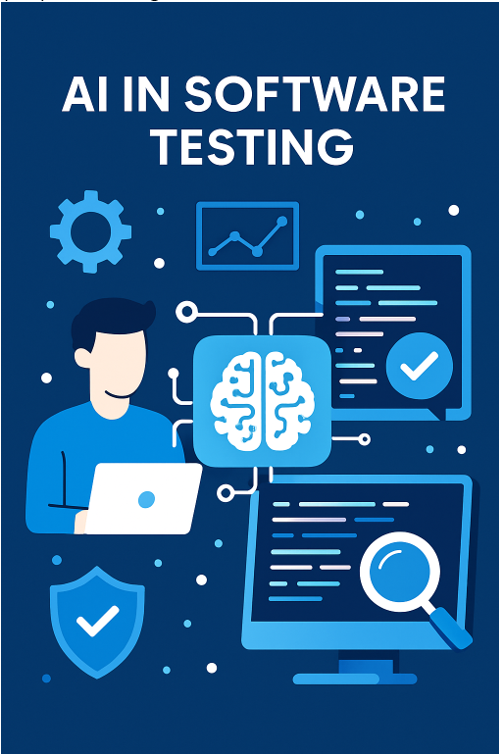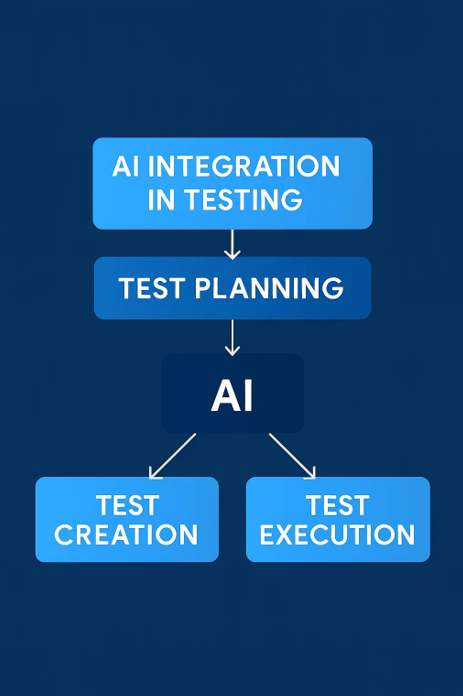In the ever-evolving world of technology, artificial intelligence (AI) is making waves across various industries. One area where AI is particularly transformative is software testing. If you've been pondering how to improve your software testing strategies, integrating AI could be the answer. Let's explore how AI can revolutionise your approach to quality assurance (QA) and testing automation.

AI, at its core, is about enabling machines to mimic human intelligence. In software testing, AI can automate repetitive tasks, predict potential problem areas, and ensure comprehensive testing coverage. By doing so, it helps teams find bugs faster and improve the overall quality of software products.
Why AI Matters in QA
Quality assurance (QA) is crucial in software development. It ensures that the final product is free of defects and meets user expectations. However, traditional QA methods can be time-consuming and prone to human error. This is where AI steps in.
AI enhances QA by:
· Reducing Manual Efforts: AI can automate repetitive testing tasks, allowing testers tofocus on more complex scenarios.
· Increasing Accuracy: Machines can process large volumes of data, making fewer mistakes [MB1], and leading to more accurate test results.
· Improving Test Coverage: AI algorithms can analyse vast amounts of data to identify areas that need more testing, ensuring no part of the software is left unchecked.
How AI Integrates with Software Testing

Integrating AI into software testing involves a few key steps. First, it's essential to understand the testing process and identify areas where AI can add value. Next, you'll need to select the right AI tools and technologies. Finally, you'll integrate these tools into your existing testing framework.
AI tools can assist in various testing phases, from test creation and execution to defect detection and reporting. They can learn from past test executions to optimise future testing efforts, making the entire process more efficient and effective.
Benefits of AI in Software Testing
Implementing AI in software testing offers numerous benefits. Here are some of the most significant:
Enhanced Test Automation
AI-driven test automation goes beyond simple script execution. It allows for smarter test case generation, dynamic testmaintenance, and intelligent defect analysis. AI can automatically update testscripts based on changes in the software, reducing the need for manual intervention.
Faster Time to Market
With AI handling repetitive tasks and optimising the testing process, your team can deliver software products faster. This speed is crucial in today's competitive market, where being first can make a significant difference.
Better Resource Utilisation
By automating routine testing tasks, AI frees up your QA team to focus on more strategic activities. This shift in focus can lead to better resource utilisation and improved team morale.
Improved Software Quality
AI can identify patterns and trends in testing data that humans might miss. This insight leads to more thorough testing, fewer bugs, and ultimately, higher-quality software.
Common AI Techniques in Software Testing
Several AI techniques are commonly used in software testing. Here are a few:
Machine Learning
Machine learning algorithms analyse historical data to predict potential problem areas in the software. These predictions help testers focus their efforts where they're needed most.
Natural Language Processing (NLP)
NLP can analyse requirements documents and user stories to generate test cases automatically. This capability speeds up test case creation and ensures alignment with user expectations.
While AI offers many benefits, integrating it into your testing strategy can be challenging. Here are some common obstacles:
Data Quality and Availability
AI relies on large data sets to function effectively. Ensuring high-quality, relevant data is available can be a significant hurdle.
Tool Selection and Integration
Choosing the right AI tools and integrating them into your existing testing framework can be complex. It's essential to evaluate tools carefully and ensure they align with your specific needs.
Skill Gaps
Your team may need to acquire new skills to work with AI tools effectively. Investing in training and development is crucial to ensure a smooth transition.
AI is here to stay, and its role in software testing will only grow. As AI technologies continue to advance, we can expect even more sophisticated testing solutions that further reduce time to market and improve software quality.
Embracing AI for a Competitive Edge
By embracing AI, software development teams can gain a competitive edge. The ability to deliver high-quality software faster and more efficiently is a significant advantage in today's fast-paced digital landscape.
Integrating AI into your software testing strategies can revolutionise your approach to quality assurance. By automating repetitive tasks, improving test coverage, and reducing time to market, AI helps teams deliver better software products. While challenges exist, the benefits far outweigh the obstacles. As AI continues to evolve, its impact on software testing will only increase, making now the perfect time to explore its potential.
In summary, AI in software testing is not just a buzzword, it's a game-changer. Don't miss out on the opportunity to enhance your testing strategies and achieve superior results.
Find out more about how disQo AI agents can take your QA to the next level!